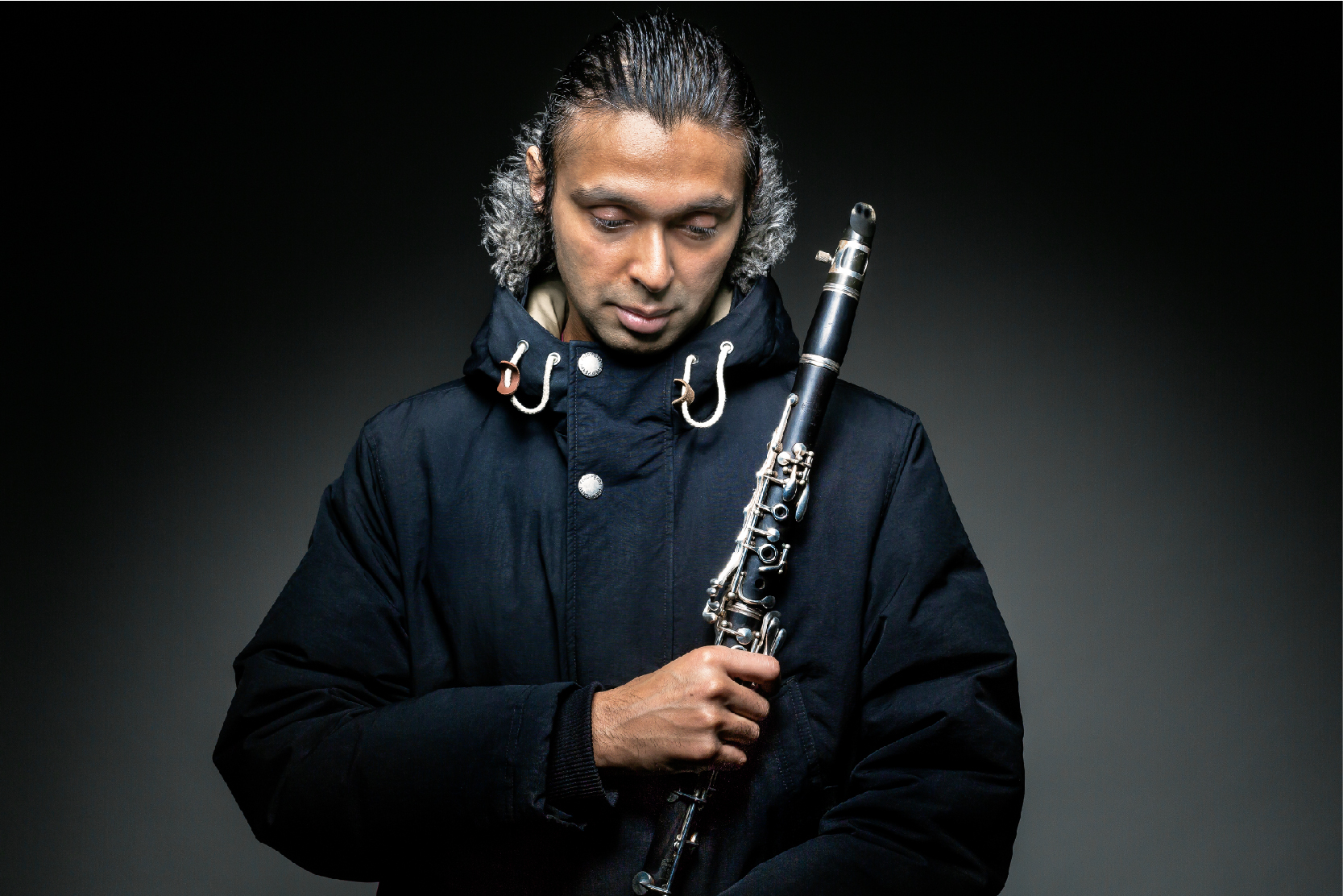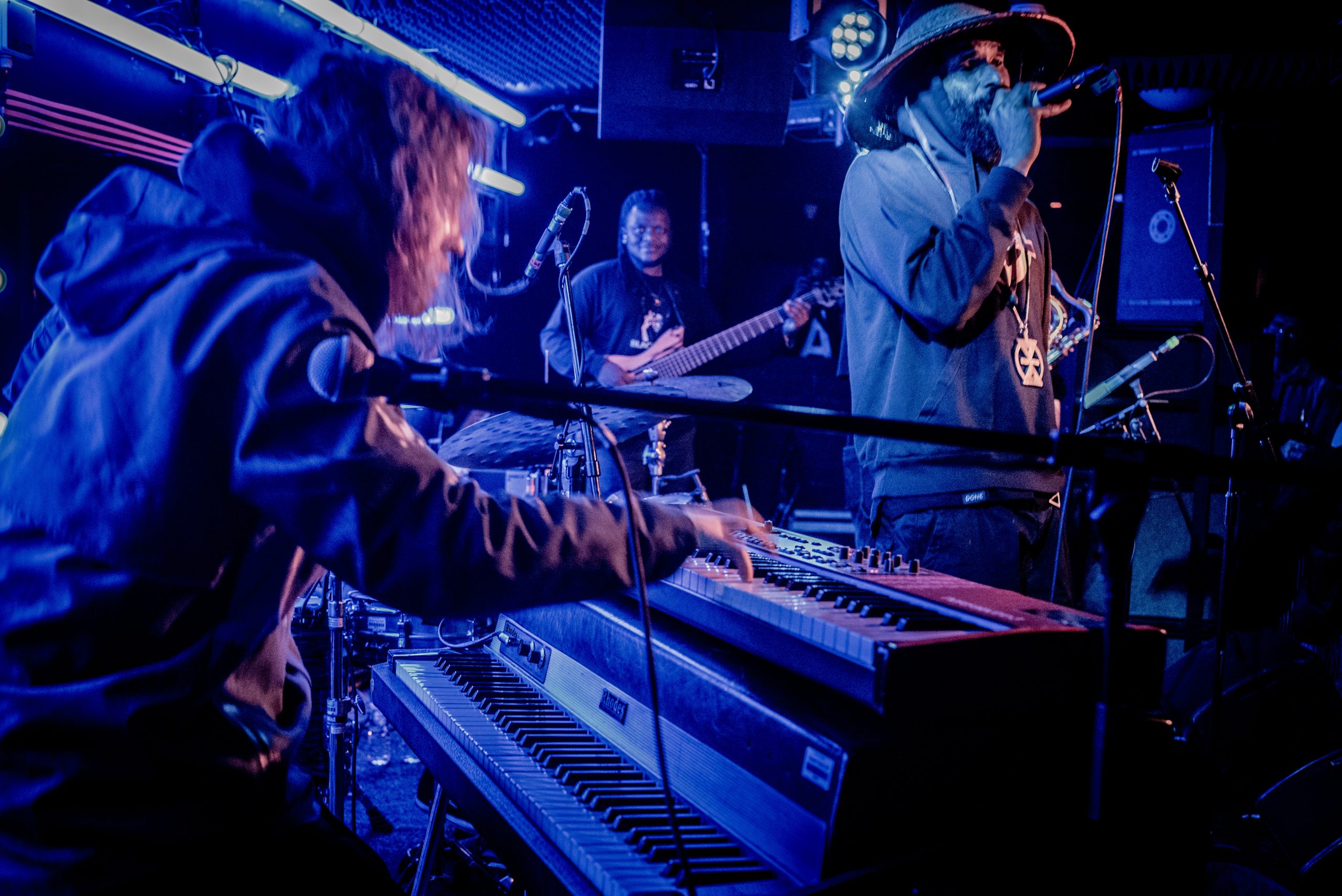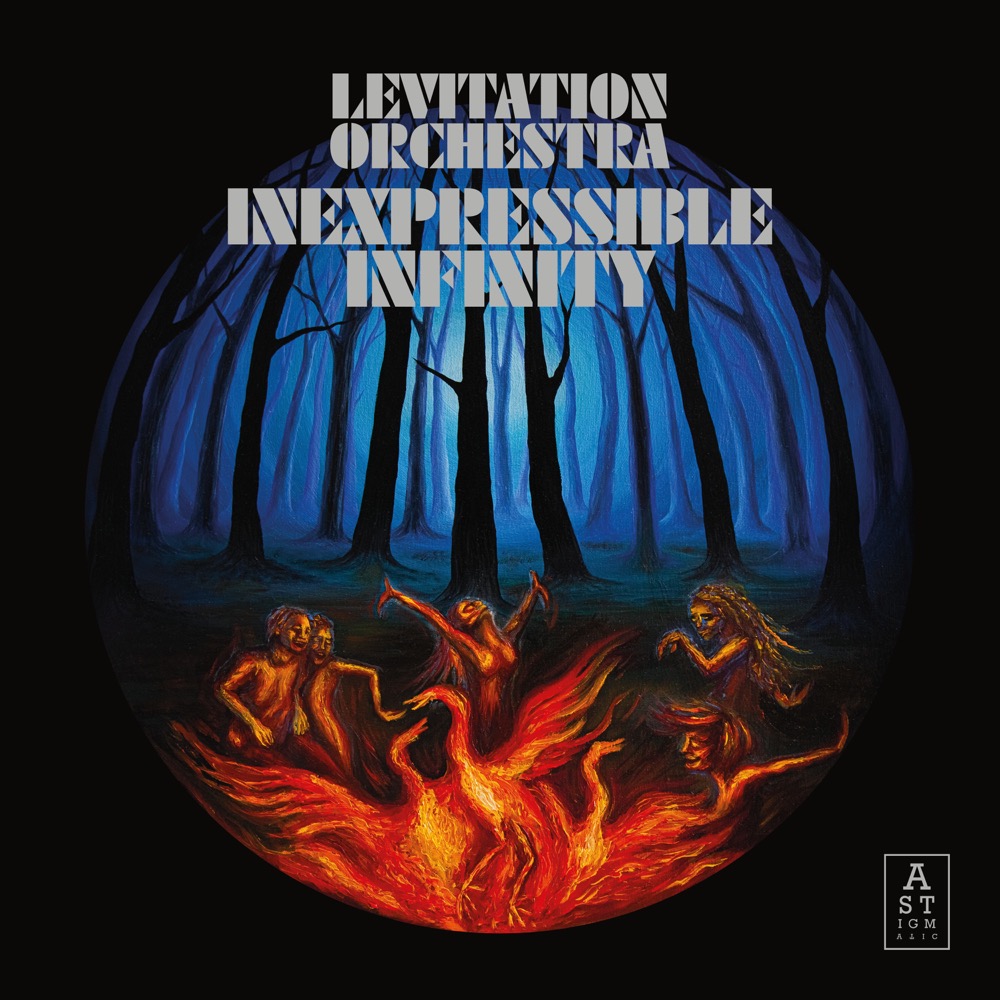Live Review: Arun Ghosh at The Ropetackle

Arun Ghosh Quintet
Ropetackle Arts Centre, Shoreham-by-sea
Saturday 3rd March, 2018
From the vibrant hues of the passport-style gatefold on his latest CD release But Where Are You Really From?, to his trademark traditional Indian stage gear, the subcontinent-influenced grooves of rising clarinettist Arun Ghosh have recently been making themselves widely felt, notably since his South Coast Jazz Festival debut in 2017.
In a supper-club style setting, and with a multicultural band looking as if they have been recruited from the streets of Kolkata, Ghosh bounces on stage in a long red silk Nehru shirt and shalwar trousers, first establishing a lightning-quick rapport with his audience with a jaunty “Hi, you all right?” in a broad Lancashire accent, then simultaneously regaling them with his love for the local landscape; Brighton FC’s win over Arsenal; and inviting them to sing Sussex By The Sea for him. By the time he launches into the sensuous, Hammond-fuelled Snakebite with Bacchus, from the new album, a kind of British/Asian film noir theme, displaying an atmospheric duality through Gershwin-like crescendos and trills from his clarinet, and the passionate, articulate alto sax responses of Chris Williams, the audience warms to his multilayered approach both to the music and the banter.
The pastoral yet urban paradox develops through This Land Is Mine, inspired by both the Sussex Downs and the Yorkshire Pennines, and tempered by an edgy streets-of-London sensibility. By contrast, Ghosh shrewdly chooses the addictive, foot-stomping rhythms and joyous melody of Panjabi Girl, written for a wedding, to round off the first set, featuring distinctive funky interplay between percussionist Hamzai Omer and Hammond organ player Jessica Lauren, and showcasing both Ghosh’s versatility as a composer and the consistent and insistent themes of identity which he explores in his work.
Keen on acknowledging his creative influences on stage between songs, Ghosh pays tribute to British-Asian playwright Parv Bancil, a strong influence on Bhangra-styled composition, Made In England: easily TV theme-tune material on first listen. However, as if to lay simultaneous claim to his own Hindu roots, on the dark, sinewy Nathurajan, the eerie sound of a santoor drone introduces a spiralling, whole-band modal improvisation for Ghosh’s re-imagining of the myth of Lord Shiva dancing the world into creation.
For the second set, traditional folk tune Bladon Races is given a blast of fresh air from acapella solo clarinet before the quintet segues into wild rock/jazz album groove Smash Through The Gates of Thought. On the ensuing Dagger Dance, Williams really comes into his own, with a punk-sax energy and urgency about his playing, powerfully backed by Liran Donin on electric bass; a buoyant, klezmer-like clarinet flavour comes into the mix, underpinned by a powerful, rolling beat from Hamzai Omer, resplendent behind his drum kit, like an Afghan tribal chieftain. By this time, it’s impossible not to dance. While a little erratic at times, this is world jazz eclecticism, at its finest.
Jasmine Sharif
[photo credit: Emile Holba]



